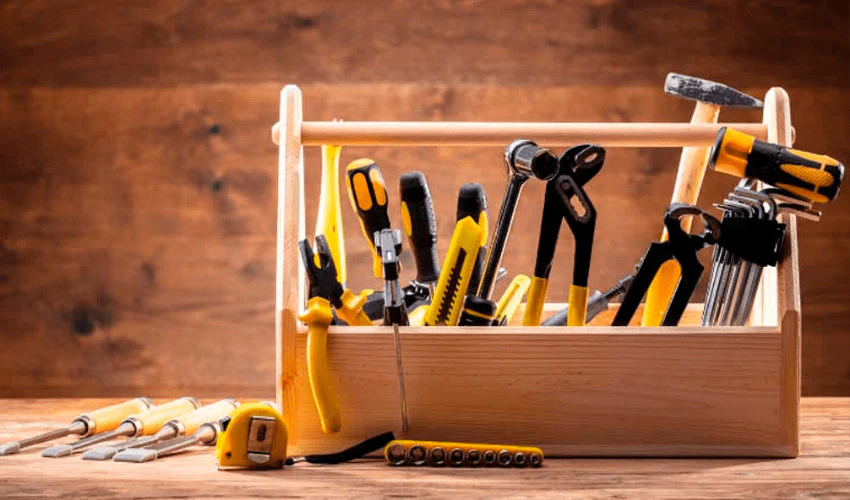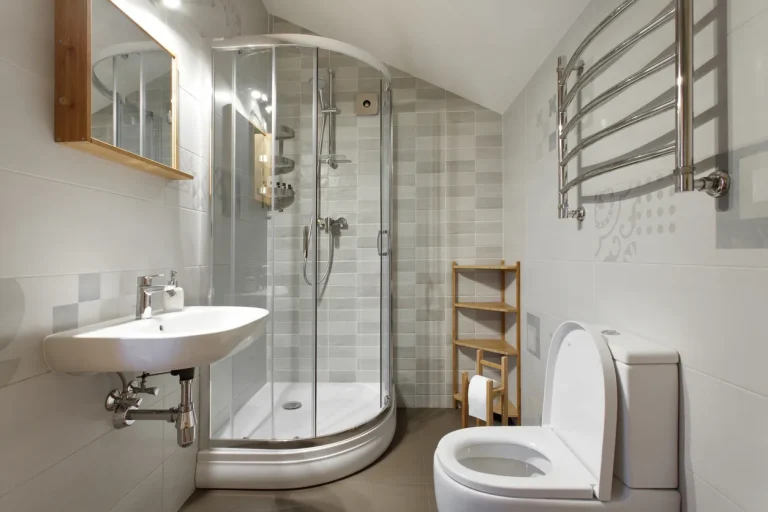
Home improvement is an endeavor that can transform a mundane space into a sanctuary. Whether you are tackling minor upgrades or undertaking a major renovation, having the right tools and contractors by your side is crucial to achieving the desired results. However, improving your home isn’t just about buying the latest power tools or hiring the first contractor you come across. A careful balance of both DIY tools and professional expertise is often the key to a successful project.
This article will explore how to effectively improve your home using the right tools and contractors, offering tips on selecting the right tools for your DIY tasks and finding the best contractors to tackle more complex jobs.
Understanding the Role of Tools in Home Improvement
The foundation of most home improvement projects begins with the right set of tools. While many tasks can be accomplished using basic hand tools, others may require specialized equipment to ensure a smooth and efficient process. Tools are essential for both small-scale repairs and larger, more involved upgrades.
1. Basic Tools for Small-Scale Projects
For smaller tasks like hanging artwork, fixing leaky faucets, or assembling furniture, a basic toolkit is usually sufficient. These tasks typically require a minimal investment in tools, and you can often get by with just a hammer, screwdriver set, tape measure, utility knife, and pliers. Even if you’re not an avid DIYer, these basic tools will come in handy for a variety of household maintenance needs.
-
Screwdrivers: A set of both flathead and Phillips-head screwdrivers is indispensable for everyday repairs. A cordless drill/screwdriver can also make the job easier, especially for repetitive tasks.
-
Hammer: A good hammer is essential for basic tasks like hanging pictures, assembling furniture, and minor demolition work.
-
Measuring Tape: Accurate measurements are critical, whether you’re installing new furniture, renovating, or hanging shelves.
-
Utility Knife: A utility knife helps you to cut through various materials such as cardboard, drywall, and carpets, making it a versatile tool in any toolkit.
2. Power Tools for Larger Projects
For more significant home improvement projects, such as installing new flooring, building custom furniture, or remodeling a room, power tools are necessary. These tools help you complete the work with more precision, speed, and ease. Below are some of the most common power tools used in home improvement:
-
Cordless Drill: Perhaps the most indispensable tool in any DIYer’s arsenal, a cordless drill allows for both drilling holes and driving screws. With the right attachments, it can handle a wide range of tasks.
-
Circular Saw: If you’re planning to cut wood or other materials for projects like building shelves or cutting flooring, a circular saw is an invaluable tool.
-
Jigsaw: A jigsaw is perfect for making intricate, curved cuts in wood, metal, and other materials.
-
Sander: For those working on refinishing furniture or smoothing out rough wood, a sander makes the process significantly easier and less time-consuming.
-
Nail Gun: If you’re putting together frames, trim, or building structures, a nail gun saves time and effort compared to hammering each nail manually.
While power tools can make larger tasks more manageable, it’s important to remember that they require proper training to use effectively and safely. Always follow manufacturer instructions and wear protective gear such as goggles, gloves, and ear protection.
The Role of Contractors in Home Improvement
While tools are critical for performing DIY tasks, certain projects—especially those that involve structural changes, plumbing, electrical work, or specialized finishes—require the expertise of a professional contractor. Hiring a contractor ensures that the job is completed safely, efficiently, and in accordance with local building codes and regulations.
1. When to Hire a Contractor
Knowing when to hire a contractor is essential to avoid costly mistakes and ensure the quality of your work. If the job requires specific skills, experience, or permits, a contractor is likely the right choice. Here are some scenarios where hiring a contractor is a smart move:
-
Electrical Work: If your project involves rewiring, adding new outlets, or upgrading your electrical panel, it is imperative to hire a licensed electrician. Incorrect electrical work can be dangerous, leading to fires or other serious issues.
-
Plumbing: Plumbing work, such as installing new pipes, fixing leaks, or upgrading fixtures, often requires a professional plumber. A licensed plumber ensures that the work meets building codes and that your home’s plumbing system functions properly.
-
Structural Changes: Any project that involves altering the structure of your home—like knocking down walls, adding new rooms, or changing the layout—should be handled by a contractor. Structural work often requires permits, and an experienced contractor will make sure the job is done correctly.
-
Remodeling: Full-scale remodeling projects—whether you’re updating your kitchen, adding a bathroom, or finishing a basement—benefit from a contractor’s experience and expertise. Remodeling often involves multiple tasks, such as plumbing, electrical, carpentry, and flooring, which are best managed by a professional.
2. Finding the Right Contractor
Choosing the right contractor is just as important as deciding to hire one in the first place. Here are some key factors to consider when hiring a contractor:
-
Do Your Research: Ask for recommendations from friends, family, or neighbors who have worked with contractors in the past. Online reviews and testimonials are also valuable resources for gauging a contractor’s reputation and reliability.
-
Verify Credentials: Always check that your contractor is licensed, insured, and bonded. A licensed contractor has the necessary skills and qualifications, while insurance and bonding protect you in case of accidents or incomplete work.
-
Get Multiple Quotes: It’s advisable to obtain at least three written quotes from different contractors before making a decision. This will give you a sense of the fair market price for your project and help you evaluate the contractor’s communication and professionalism.
-
Review the Contract: Before work begins, ensure that the scope of work, payment terms, and timeline are clearly outlined in a contract. A detailed contract protects both you and the contractor from misunderstandings or disputes later on.
3. Managing the Contractor
Once you’ve hired a contractor, it’s essential to maintain clear communication throughout the project. Regularly check on the progress, ask for updates, and make sure the work aligns with your vision. If any issues arise, address them promptly to avoid delays or miscommunication. Additionally, always ensure that your contractor pulls the necessary permits for the work being done, as failing to do so can lead to fines or complications down the line.
Combining Tools and Contractors for Maximum Efficiency
In many cases, home improvement projects can benefit from both DIY tools and the expertise of contractors. For example, you may decide to handle tasks like painting, tiling, or installing simple fixtures yourself, while leaving the more complicated work—such as electrical rewiring or structural changes—up to a contractor.
The key is to find a balance that suits your skills, budget, and time constraints. By knowing your limitations and utilizing the right tools for the job, you can take on a variety of home improvement projects. At the same time, hiring qualified contractors for specialized work ensures that your project is completed to the highest standard and in compliance with all necessary regulations.
Conclusion
Improving your home requires both a thoughtful approach and a blend of the right tools and professional expertise. While the right tools allow you to tackle a variety of tasks on your own, contractors are essential for handling more complex and technical projects. By understanding when to take on DIY tasks and when to hire professionals, you can create a home that is not only visually appealing but also safe, functional, and built to last. Whether you’re planning small upgrades or a full renovation, having the right tools and contractors on your team can make all the difference in achieving the results you envision.





